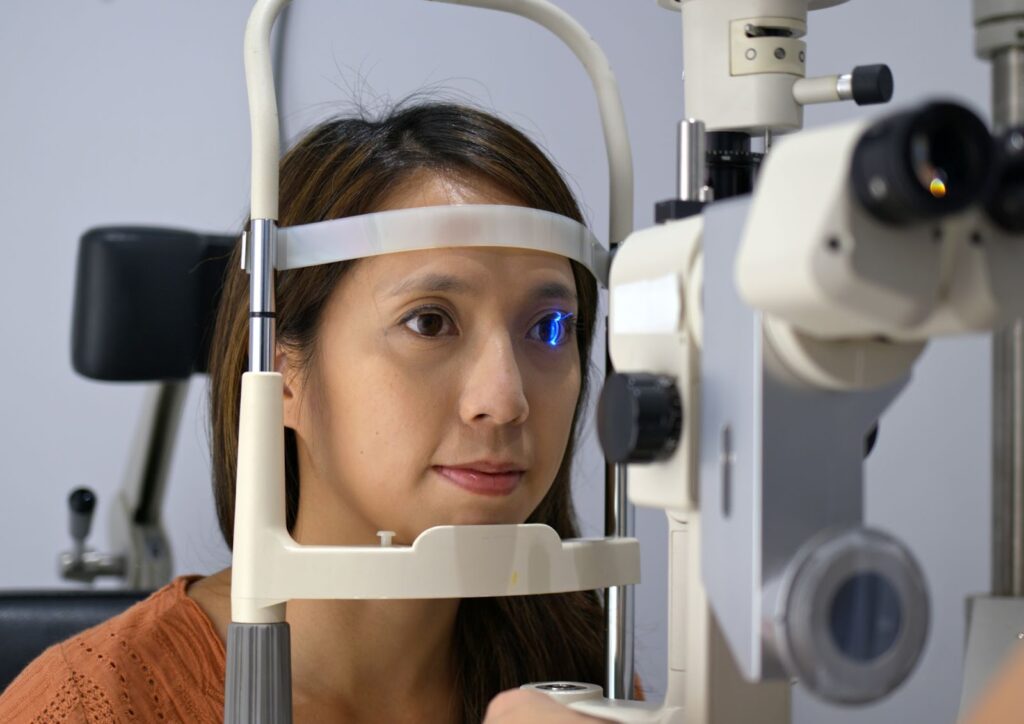Finding the Right Glaucoma Specialist: What to Consider

When it comes to managing an eye condition like glaucoma, finding the right specialist is of utmost importance. Glaucoma is a complex disease that can lead to vision loss if not properly treated and monitored. Therefore, it is crucial to choose a glaucoma specialist who has the expertise and experience to provide the best care possible. In this article, we will discuss the key factors to consider when selecting a glaucoma specialist and provide guidance on asking the right questions during the selection process.
Understanding Glaucoma: A Brief Overview
Before diving into the details of finding the right glaucoma specialist, it is essential to have a basic understanding of the condition itself. Glaucoma is a progressive eye disease that damages the optic nerve, often caused by an increase in intraocular pressure. If left untreated, it can result in irreversible vision loss.
A glaucoma specialist plays a crucial role in managing and treating glaucoma. These healthcare professionals possess advanced knowledge and expertise in the diagnosis, treatment, and ongoing care of glaucoma patients.
There are several different types of glaucoma, including open-angle glaucoma, angle-closure glaucoma, and normal-tension glaucoma. Each type requires specific management and treatment approaches, which is why it is crucial to seek specialized care.
The Importance of Early Detection
Early detection of glaucoma is vital to preventing vision loss. Regular eye exams, including a comprehensive evaluation of the optic nerve and intraocular pressure measurement, are essential for spotting any signs of glaucoma in its early stages.
By finding a glaucoma specialist who emphasizes the importance of early detection, you can ensure that any potential issues are promptly recognized and addressed. This proactive approach can significantly improve the chances of maintaining optimal eye health.
Different Types of Glaucoma
As mentioned earlier, there are different types of glaucoma, each requiring specific expertise for effective management. Open-angle glaucoma is the most common type, characterized by a gradual increase in eye pressure. Angle-closure glaucoma, on the other hand, occurs when the drainage angle of the eye becomes blocked, leading to a sudden increase in intraocular pressure. Read more about effective management at https://www.uagc.edu/blog/5-principles-of-great-management
Understanding the various types of glaucoma and their nuances will help you appreciate the importance of finding a specialist who is well-versed in diagnosing and treating your specific condition.
It is worth noting that glaucoma is often referred to as the “silent thief of sight” because it typically progresses slowly and without noticeable symptoms in its early stages. This makes regular eye exams even more crucial, as they can detect glaucoma before significant vision loss occurs.
In addition to the different types of glaucoma mentioned earlier, there are also secondary glaucomas, which are caused by other underlying conditions such as trauma, inflammation, or certain medications. These secondary glaucomas require specialized knowledge and expertise to manage effectively.
Furthermore, it is important to understand that glaucoma is not limited to a specific age group. While it is more common in older adults, it can affect individuals of all ages, including infants and children. Pediatric glaucoma, for instance, requires specialized care from ophthalmologists who have experience in treating young patients.
By expanding your knowledge about glaucoma and its various aspects, you can make informed decisions when it comes to choosing a glaucoma specialist who can provide the best possible care for your specific needs. Remember, early detection and specialized treatment are key to preserving your vision and maintaining optimal eye health.

The Role of a Glaucoma Specialist
The Specialist’s Responsibilities
A glaucoma specialist is responsible for accurately diagnosing the type and severity of glaucoma and developing an individualized treatment plan. They regularly monitor the patient’s condition through various tests, including visual field testing and optic nerve evaluation. Additionally, they may perform glaucoma surgeries or laser procedures as needed.
But the role of a glaucoma specialist goes beyond diagnosis and treatment. These specialists also play a vital role in educating patients about glaucoma and its management. They take the time to explain the disease, its progression, and the importance of adhering to the prescribed treatment plan. By providing this information, glaucoma specialists empower patients to actively participate in their own eye health and make informed decisions about their treatment.
Furthermore, a glaucoma specialist works closely with other eye care professionals, such as optometrists and ophthalmologists, to ensure comprehensive and coordinated care. They collaborate with these professionals to share information, discuss treatment options, and provide the best possible care for their patients.
The Benefits of Seeing a Specialist
While general eye care providers can provide excellent basic eye care, the significant benefits of seeing a glaucoma specialist cannot be overlooked. Glaucoma specialists have extensive experience in managing complex glaucoma cases and stay up to date with the latest advancements in glaucoma treatment.
Choosing a specialist who focuses on glaucoma ensures that you receive the specialized care required for optimal disease management. These specialists are equipped to handle the unique challenges that glaucoma presents and can tailor treatment plans based on the specific needs of each patient.
Moreover, glaucoma specialists are often involved in research and clinical trials, contributing to the development of new treatment options and advancements in glaucoma care. By seeking care from a glaucoma specialist, you not only benefit from their expertise but also contribute to the advancement of knowledge in the field.
In conclusion, a glaucoma specialist is a highly trained healthcare professional who plays a critical role in the management and treatment of glaucoma. Their responsibilities extend beyond diagnosis and treatment, encompassing patient education and collaboration with other eye care providers. By seeking care from a glaucoma specialist, patients can benefit from their specialized knowledge, experience, and dedication to advancing glaucoma care.
Key Factors to Consider When Choosing a Glaucoma Specialist
When it comes to your eye health, choosing the right glaucoma specialist is of utmost importance. Glaucoma, a complex and potentially sight-threatening condition, requires the expertise and experience of a skilled professional. While the initial factors mentioned are crucial, let’s delve deeper into the key considerations to ensure you make the best decision for your eye care needs.
Experience and Expertise
Glaucoma management is a specialized field that demands a high level of skill and knowledge. When evaluating potential specialists, it is essential to look beyond their years of experience and consider their specific expertise in glaucoma. A specialist with a track record of successfully managing a diverse range of glaucoma cases can provide you with the confidence and peace of mind you need.
Furthermore, inquire about their familiarity with the latest diagnostic and treatment approaches. Glaucoma research and advancements are constantly evolving, so a specialist who stays up-to-date with the latest developments can offer you the most effective and cutting-edge care. To learn more about cutting-edge care click here.
Communication and Patient Care
Effective communication and patient care are vital aspects of any medical professional-patient relationship. When it comes to glaucoma, a condition that requires ongoing management, clear and open communication is even more crucial. Look for a specialist who not only listens attentively to your concerns but also takes the time to explain your condition, treatment options, and potential risks in a way that you can understand.
Additionally, a glaucoma specialist who involves you in the decision-making process empowers you to actively participate in your own eye care. Feeling heard and valued as a patient can significantly enhance your overall experience and satisfaction with the treatment plan.
Accessibility and Location
While the expertise and communication skills of a glaucoma specialist are paramount, accessibility and location should not be overlooked. Glaucoma often requires regular check-ups, follow-up visits, and, in some cases, surgical or laser procedures. Choosing a specialist who is conveniently located can make managing the disease less burdensome.
Consider the proximity of the specialist’s clinic to your home or workplace, as well as the availability of public transportation or parking options. Opting for a location that is easily accessible can reduce the stress and logistical challenges associated with frequent visits, ensuring that you can prioritize your eye health without added inconvenience.
By carefully considering these factors, you can make an informed decision when choosing a glaucoma specialist. Remember, your eye health is invaluable, and entrusting it to a skilled and compassionate professional is the first step towards preserving your vision for years to come.
Questions to Ask Your Potential Glaucoma Specialist
Asking the right questions is crucial when determining if a glaucoma specialist is the right fit for you. Here are some questions to consider during your consultation:
Inquiring About Treatment Options
What treatment options do you typically recommend for patients with my type and severity of glaucoma?
Are there any alternative treatment approaches or clinical trials available?
What are the potential risks and benefits associated with each treatment option?
Understanding the available treatment options and their potential outcomes will help you make informed decisions about your eye care.
Glaucoma treatment options have evolved significantly in recent years, with advancements in medications, laser therapies, and surgical procedures. Your specialist may discuss traditional eye drops, minimally invasive surgeries like trabeculectomy or tube shunt implantation, or even emerging technologies like micro-stents or laser trabeculoplasty. Each option comes with its own set of considerations, such as efficacy, potential side effects, and long-term success rates.
Furthermore, inquiring about alternative treatment approaches can open up discussions about holistic or complementary therapies that may support conventional treatments. Clinical trials can also provide access to cutting-edge therapies that are not yet widely available, offering you the opportunity to be at the forefront of glaucoma management.

Understanding the Specialist’s Approach
What is your approach to managing glaucoma? Do you prefer a conservative or aggressive treatment strategy?
How do you involve your patients in the decision-making process?
Do you collaborate with other eye care professionals to ensure comprehensive care?
Understanding the doctor’s treatment philosophy and approach will give you valuable insights into their overall management strategy.
A specialist’s approach to managing glaucoma can vary based on factors such as disease progression, patient preferences, and overall health status. Some specialists may adopt a conservative approach, focusing on gradual interventions and close monitoring to preserve vision and quality of life. In contrast, others may opt for a more aggressive strategy, utilizing early surgical interventions or combination therapies to achieve rapid intraocular pressure control.
Collaboration with other eye care professionals, such as optometrists, retina specialists, or neuro-ophthalmologists, can enhance the overall quality of care you receive. By working in a multidisciplinary team, your glaucoma specialist can ensure that all aspects of your eye health are addressed comprehensively, leading to better outcomes and a more personalized treatment plan.
Making the Final Decision: Trusting Your Instincts
After considering the factors mentioned above and asking the necessary questions, trust your instincts when making the final decision. Pay attention to how comfortable and confident you feel when interacting with the glaucoma specialist.
Evaluating Your Comfort Level
Do you feel heard and understood when discussing your concerns?
Does the specialist explain things clearly and patiently?
Feeling comfortable and at ease during your appointments is crucial for building a trusting relationship with your glaucoma specialist.
Assessing Your Confidence in the Specialist’s Abilities
Do you have confidence in the specialist’s knowledge and expertise?
Do they have a proven track record of successfully managing glaucoma patients?
Choosing a specialist who instills confidence in their abilities will provide peace of mind and ensure you receive the best possible care.In conclusion, finding the right glaucoma specialist requires careful consideration of various factors, including their expertise, communication skills, and accessibility. By understanding the importance of early detection and different types of glaucoma, you can make an informed decision when selecting a specialist. Asking the right questions and trusting your instincts will help you find a glaucoma specialist who is dedicated to managing your condition and ensuring optimal eye health.
Read more about cost of glacouma on: How Much Does Glaucoma Surgery Cost in Australia
